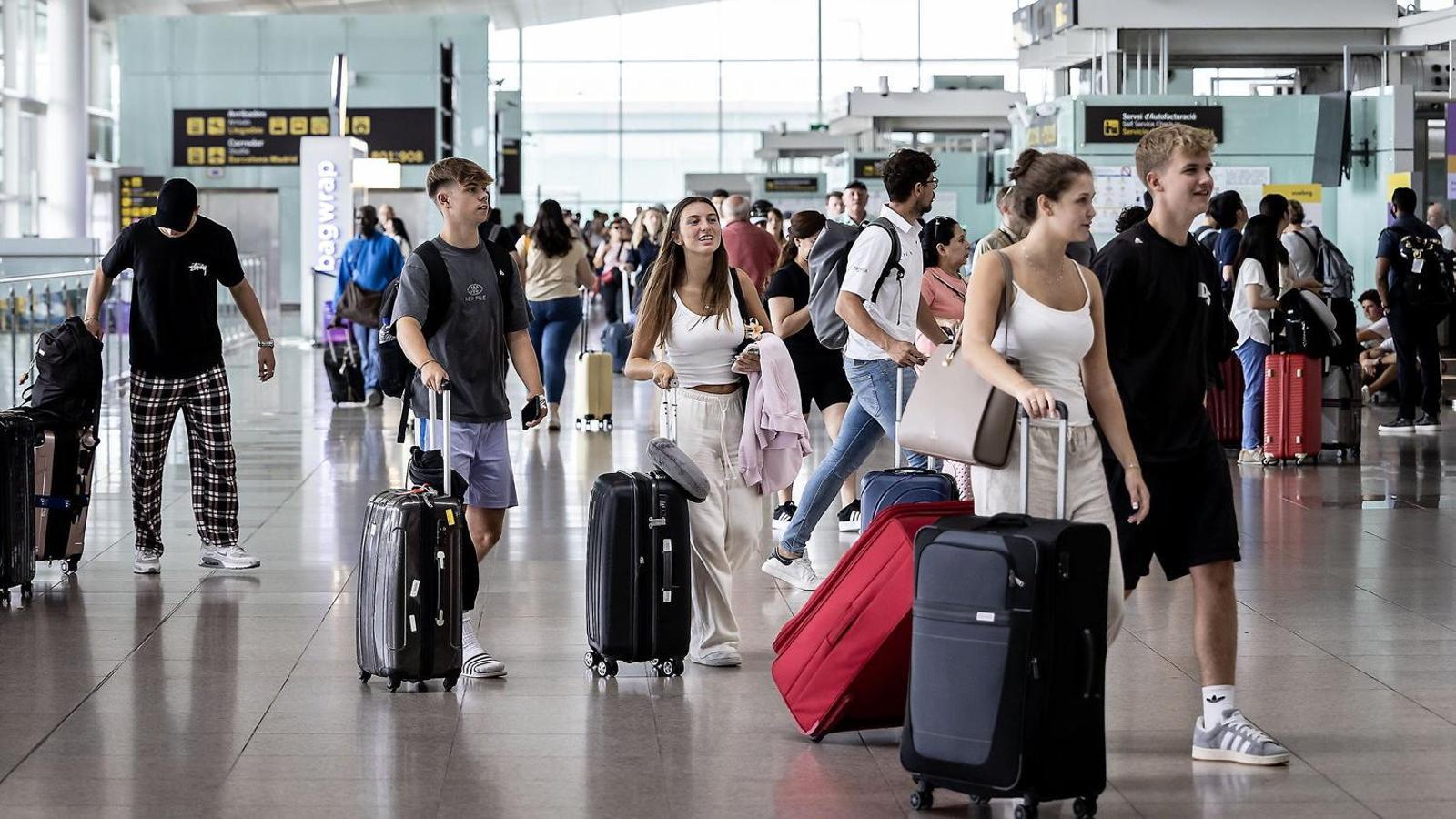The European Parliament calls for only a small amount of extra hand luggage to be free on planes.
The European Parliament votes to force airlines to pay more compensation for flight delays.


BrusselsThe European Parliament once again takes a more pro-consumer stance that state governmentsThe European Parliament's Transport Committee has supported—with 33 votes in favor and two abstentions—increasing airline compensation for delays and providing a small piece of hand luggage and a backpack free of charge. All MEP groups, from the Left to the far-right, have agreed and, starting this Wednesday, will begin negotiating the reform of the new directive on airline passenger rights with the Council of the European Union, which represents the Member States, and the European Commission.
The European Parliament's position is quite different from that of the Member States, who tend to impose their interests in EU negotiations. According to drafts seen by ARA, the European Parliament has agreed that European legislation will require airlines to pay customers 300 euros for a delay of more than three hours. If the flight is longer than 1,500 kilometers, compensation should be €400, and if it is longer than 3,500 kilometers, it should be €600.
Member states, however, have voted to require airlines to only compensate consumers €300 if a flight of less than 3,500 kilometers is delayed by at least four hours (previously it was three hours). If the flight is longer than 3,500 kilometers, the delay must be at least six hours to qualify for compensation, and the maximum amount can be €500.
The European Parliament also advocates for passengers to be able to carry a small piece of hand luggage free of charge, as well as a separate "personal item," such as a handbag, backpack, or, among other items, a computer case. Thus, airlines would also not be able to charge anything for hand luggage that does not exceed 7 kilograms in weight, provided that its length, width, and height do not exceed 100 cm. However, this is a smaller piece of luggage than most airlines allow (mostly for a fee) into the cabin, which typically set a limit of 55 x 40 x 20 cm.
Thus, unlike the EU Council, the European Parliament opts for allowing items of luggage, but the limit for the latter is not much higher than that agreed upon by national governments, which believe that all "personal items" that can be stored under the seat in front of them should not be charged. That is, one piece of luggage per passenger that is no larger than 40 x 30 x 15 cm.
Spain leads the fight against airlines in the EU
The member states' agreement to allow airlines to charge for hand luggage was met with a vote against by Spain, the largest EU country to oppose it. The Spanish government has even imposed a €179 million fine on various airlines, including Ryanair, Vueling, EasyJet, and Volotea, for charging for hand luggage.
The Ministry of Consumer Affairs' decision is based on a 2014 ruling by the Court of Justice of the EU, which states that cabin baggage is an "indispensable item" and "cannot be subject to a price supplement, provided that it meets reasonable requirements regarding its weight and dimensions and complies with applicable safety requirements." This ruling and subsequent ones, however, have been interpreted differently by some governments and airlines, which believe they can charge for carry-on baggage. In fact, the European Commission has opened a case against Spain regarding these sanctions and recalls that the Luxembourg court's ruling also indicates that companies can impose "reasonable" conditions on charging, such as the size and weight of the baggage.
